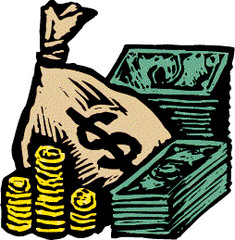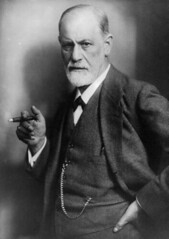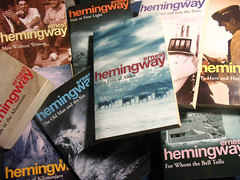AMSCO United States History 2015 Edition, Chapter 23 The Modern Era of the 1920s
| 6208342752 | Warren Harding | In November 1920, he was elected the 29th president of the United States. He was a Republican whose slogan was: "Return to Normalcy". His term was marked by scandals and corruption, although he was never implicated in any of the scandals. In August 1923, he died while traveling in the West. (p. 475-476) |  | 0 |
| 6208342753 | Charles Evans Hughes | A former presidential candidate and Supreme Court justice who was appointed secretary of state by President Warren G. Harding. (p. 476) |  | 1 |
| 6208342755 | Harry Daugherty | Attorney General under President Harding who accepted bribes for agreeing not to prosecute certain criminal suspects. (p. 476) |  | 2 |
| 6208342756 | Albert Fall | Secretary of the Interior during Harding's administration. He was convicted of accepting bribes for granting oil leases near Teapot Dome, Wyoming. (p. 476) |  | 3 |
| 6208342757 | Teapot Dome | A government scandal involving a former United States Navy oil reserve in Wyoming that was secretly leased to a private oil company in 1921. (p. 476) | 4 | |
| 6208342758 | Fordney-McCumber Tariff Act | This tariff passed in 1922, raised tariffs on foreign manufactured goods by 25 percent. It helped domestic manufacturers, but limited foreign trade, and was one cause of the Great Depression of 1929. (p. 476, 488) |  | 5 |
| 6208342759 | Bureau of the Budget | Formed in 1921, this bureau created procedures for all government expenditures to be placed in a single budget for Congress to annually review and vote on. (p. 476) |  | 6 |
| 6208342760 | Calvin Coolidge | As vice president, he became president when Warren Harding died in August 1923. He won the presidential election of 1924, but declined to run in 1928. He was a Republican who believed in limited government. He summarized his presidency and his era with the phrase: "The business of America is business". (p. 477) |  | 7 |
| 6208342761 | Herbert Hoover | When Calvin Coolidge decide not to run for president in 1928, he was the Republican presidential nominee. He promised to extend "Coolidge Prosperity", and won the election. (p. 477) |  | 8 |
| 6208342762 | Alfred E. Smith | He was the Democratic presidential candidate in the 1928 presidential election. He was the former governor of New York and his opponent in the presidential race was Republican Herbert Hoover. As a Roman Catholic and opponent of Prohibition, he appealed to immigrant urban voters. (p. 477) | 9 | |
| 6208342765 | scientific management | A system of industrial management created and promoted in the early twentieth century by Frederick W. Taylor. It emphasized time-and-motion studies to improve factory performance. (p. 478) |  | 10 |
| 6208342766 | Henry Ford | By 1914, he had perfected a system for manufacturing automobiles using an assembly line. (p. 478) |  | 11 |
| 6208342768 | open shop | A company with a labor agreement under which union membership cannot be required as a condition of employment. (p. 479) | 12 | |
| 6208342769 | welfare capitalism | An approach to labor relations in which companies voluntarily offer their employees improved benefits and higher wages in order to reduce their interest in joining unions. (p. 479) | 13 | |
| 6208342770 | consumerism | In the 1920s, this was fueled by: homes with electricity, electrical appliances, affordable automobiles, increased advertising, and purchasing on credit. (p. 478) |  | 14 |
| 6208342772 | impact of the automobile | In the 1920s, this product had the largest impact on society. It caused a growth of cities and suburbs, and workers no longer needed to live near their factories. It provided job opportunities and was a much more efficient way of transportation. (p. 479) | 15 | |
| 6208342773 | jazz age | Name for the 1920s, because of the popularity of jazz, a new type of American music that combined African rhythms, blues, and ragtime. (p. 480) |  | 16 |
| 6208342774 | radio, phonographs | Allowed mostly young people to listen to recorded music. The first radio station went on the air in 1920. Previously, newspapers had been the only form of mass communications. (p. 480) |  | 17 |
| 6208342775 | national networks | Nationwide radio networks enabled people all over the country to listen to the same news, sports, soap operas, quiz shows and comedies. (p. 480) |  | 18 |
| 6208342776 | Hollywood | The movie industry was centered here. The industry grew rapidly in the 1920s. Sound was introduced to movies in 1927. By 1929 over 80 million movie tickets were sold each week. (p. 480) | 19 | |
| 6208342778 | popular heroes | Americans shifted role models from politicians to sports heroes and movie stars. Sports heros included Jack Dempsey, Jim Thorpe, Babe Ruth, and Bobby Jones. However, the most celebrated was Charles Lindbergh who flew from Long Island to Paris in 1927. (p. 480) |  | 20 |
| 6208342781 | Sigmund Freud | Austrian psychiatrist who originated psychoanalysis. (p. 481) |  | 21 |
| 6208342782 | morals and fashions | In the 1920s, movies, novels, automobiles, and new dances encouraged greater promiscuity. Young women shocked their elders by wearing dresses hemmed at the knee (flapper look), cutting their hair short, smoking cigarettes, and driving cars. (p. 481) |  | 22 |
| 6208342783 | Margaret Sanger | She founded American Birth Control League; which became Planned Parenthood in the 1940s. She advocated birth control awareness. (p. 481) |  | 23 |
| 6208342784 | high school education | In the 1920s, universal high school education became a new American goal. By 1930, the number of high school graduates had doubled to over 25 percent of school-age adults. (p. 481) |  | 24 |
| 6208342785 | consumer culture | In the 1920s, many writers were disillusioned with the materialism of the business oriented culture. (p. 481) |  | 25 |
| 6208342786 | Frederick Lewis Allen | In 1931, he wrote "Only Yesterday", a popular history book that portrayed the 1920s as a period of narrow-minded materialism in which the middle class abandoned Progressive reforms, embraced conservative Republican policies, and either supported or condoned nativism, racism, and fundamentalism. (p. 489) |  | 26 |
| 6208342788 | Gertrude Stein | American writer of experimental novels, poetry, essays, operas, and plays. She called the disillusioned writers of the 1920s, a "lost generation". (p. 481) |  | 27 |
| 6208342789 | Lost Generation | Group of writers in 1920s, who shared the belief that they were lost in a greedy and materialistic world that lacked moral values. Many of them moved to Europe. (p. 481) |  | 28 |
| 6208342790 | F. Scott Fitzgerald, Ernest Hemingway, Sinclair Lewis, Ezra Pound, | Popular authors of the 1920s | 29 | |
| 6208342794 | T. S. Eliot | An essayist, publisher, playwright, literary and social critic, and one of the twentieth century's major poets. (p. 481) |  | 30 |
| 6208342795 | Eugene O'Neill | An American playwright of the 1920s. (p. 481) |  | 31 |
| 6208342796 | industrial design | The fusion of art and technology during the 1920s and 1930s created this new profession. (p. 482) |  | 32 |
| 6208342797 | Art Deco | The 1920's modernistic art style that captured modernistic simplification of forms, while using machine age materials. (p. 482) |  | 33 |
| 6208342798 | Edward Hopper | A twentieth-century American painter, whose stark realistic paintings often convey a mood of solitude and isolation in common urban settings. (p. 482) |  | 34 |
| 6208342799 | regional artists | Thomas Benton and Grant Wood celebrated the rural people and scenes of the American heartland. (p. 482) |  | 35 |
| 6208342800 | Grant Wood | An American Regional artist who focused on rural scenes in Iowa. He is best known for his painting "American Gothic". (p. 482) |  | 36 |
| 6208342801 | George Gershwin | He was the son of Russian-Jewish immigrants. He blended jazz and classical music to produce "Rhapsody in Blue" and folk opera "Porgy and Bess". (p. 482) |  | 37 |
| 6208342803 | Harlem Renaissance | The largest African American community of almost 200,000 developed in the Harlem section of New York City. It became famous in the 1920s for its talented actors, artists, musicians, and writers. This term describes this period. (p. 483) |  | 38 |
| 6208342804 | Countee Cullen, Langston Hughes, James Weldon Johnson, Claude McKay, Duke Ellington, Louis Armstrong, Bessie Smith, Paul Robeson | Leading 1920s African American talent from Harlem. (p. 483) | 39 | |
| 6208342812 | Back to Africa movement | Encouraged those of African descent to return to Africa. (p. 483) |  | 40 |
| 6208342813 | Marcus Garvey | African American leader during the 1920s who founded the Universal Negro Improvement Association and advocated mass migration of African Americans back to Africa. He was deported to Jamaica and his movement collapsed. (p. 483) | 41 | |
| 6208342815 | modernism | They took a historical and critical view of certain Bible passages and believed that they could accept Darwin's theory of evolution without abandoning their religion. (p. 483) |  | 42 |
| 6208342816 | fundamentalism | A Protestant Christian movement emphasizing the literal truth of the Bible and opposing religious modernism (p. 483) |  | 43 |
| 6208342817 | revivalists | Leading radio evangelists such as Billy Sunday and Aimee Semple McPherson preached a fundamentalist message. (p 484) |  | 44 |
| 6208342818 | Scopes trial | A 1925 Tennessee court case in which Clarence Darrow and William Jennings Bryan argued the issue of teaching evolution in public schools. (p. 484) | 45 | |
| 6208342819 | Clarence Darrow | A famed criminal defense lawyer, he defended John Scopes, a teacher who taught evolution in his Tennessee classroom. (p. 484) |  | 46 |
| 6208342820 | Volstead Act | The federal law of 1919 that established criminal penalties for manufacturing, transporting, or possessing alcohol. (p. 484) |  | 47 |
| 6208342822 | organized crime | In the 1920s, a big business, as bootleggers transported and sold liquor to many customers. (p. 484) |  | 48 |
| 6208342823 | Al Capone | A famous Chicago gangster who fought for control of the lucrative bootlegging (liquor) trade. (p. 484) |  | 49 |
| 6208342824 | 21st Amendment | The amendment which ended the prohibition of alcohol in the United States, it repealed the 18th amendment. (p. 485) |  | 50 |
| 6208342825 | quota laws of 1921 and 1924 | Laws passed to limit immigration. (p. 485) |  | 51 |
| 6208342826 | Sacco and Vanzetti Case | A criminal case of two Italian men who were convicted of murder in 1921. They were prosecuted because they were Italians, atheists, and anarchists. After 6 years of appeals they were executed in 1927. (p. 485) |  | 52 |
| 6208342827 | Ku Klux Klan | A secret society created by white southerners in 1866. They used terror and violence to keep African Americans from exercising their civil rights. (p. 486) |  | 53 |
| 6208342828 | Birth of a Nation | A popular silent film, which portrayed the KKK during Reconstruction as heros. (p. 486) | 54 | |
| 6208342829 | blacks, Catholics and Jews | The KKK directed hostility toward these groups in the North. (p. 486) |  | 55 |
| 6208342831 | disarmament | Republican presidents of the 1920s tried to promote peace and also to scale back defense expenditures by arranging treaties (reduction in military equipment). (p. 486) |  | 56 |
| 6208342832 | Washington Conference | A 1921 conference that placed limits on naval powers, respect of territory in the Pacific, and continued the Open Door policy in China. (p. 487) |  | 57 |
| 6208342833 | Five-Power Naval Treaty | A 1922 treaty resulting from the Washington Armaments Conference that limited to a specific ratio the carrier and battleship tonnage of each nation. The five countries involved were: United States, Great Britain, Japan, France, and Italy. (p. 487) |  | 58 |
| 6208342834 | Nine-Power China Treaty | A 1922 treaty affirming the sovereignty and territorial integrity of China as previously stated in the Open Door Policy. (p. 487) |  | 59 |
| 6208342835 | Kellogg-Briand Treaty | This treaty of 1928 renounced the use of force to achieve national ends. It was signed by Frank Kellogg of the United States and Aristide Briand of France, and most other nations. The international agreement proved ineffective. (p. 487) | 60 | |
| 6208342836 | Latin America policy | In 1927, the United States signed an agreement with Mexico protecting U.S. interests in Mexico. (p. 487) |  | 61 |
| 6208342839 | Dawes Plan | A 1924 plan, created by Charles Dawes in which the United States banks would lend large sums to Germany. Germany would use the money to rebuild its economy and pay reparations to Great Britain and France. Then Great Britain and France would pay their war debts to the United States. After the 1929 stock market crash, the loans to Germany stopped. (p. 488) | 62 |

